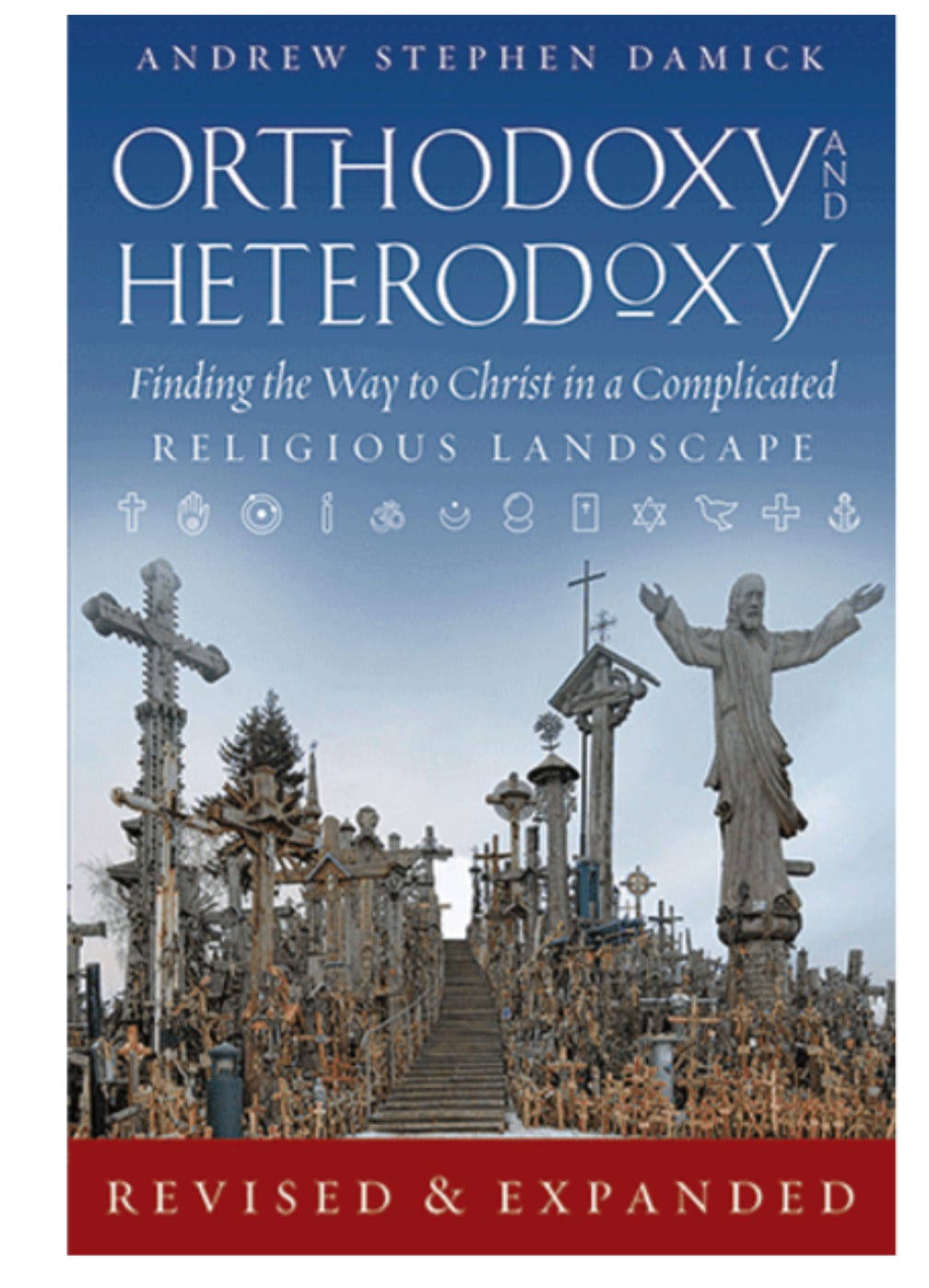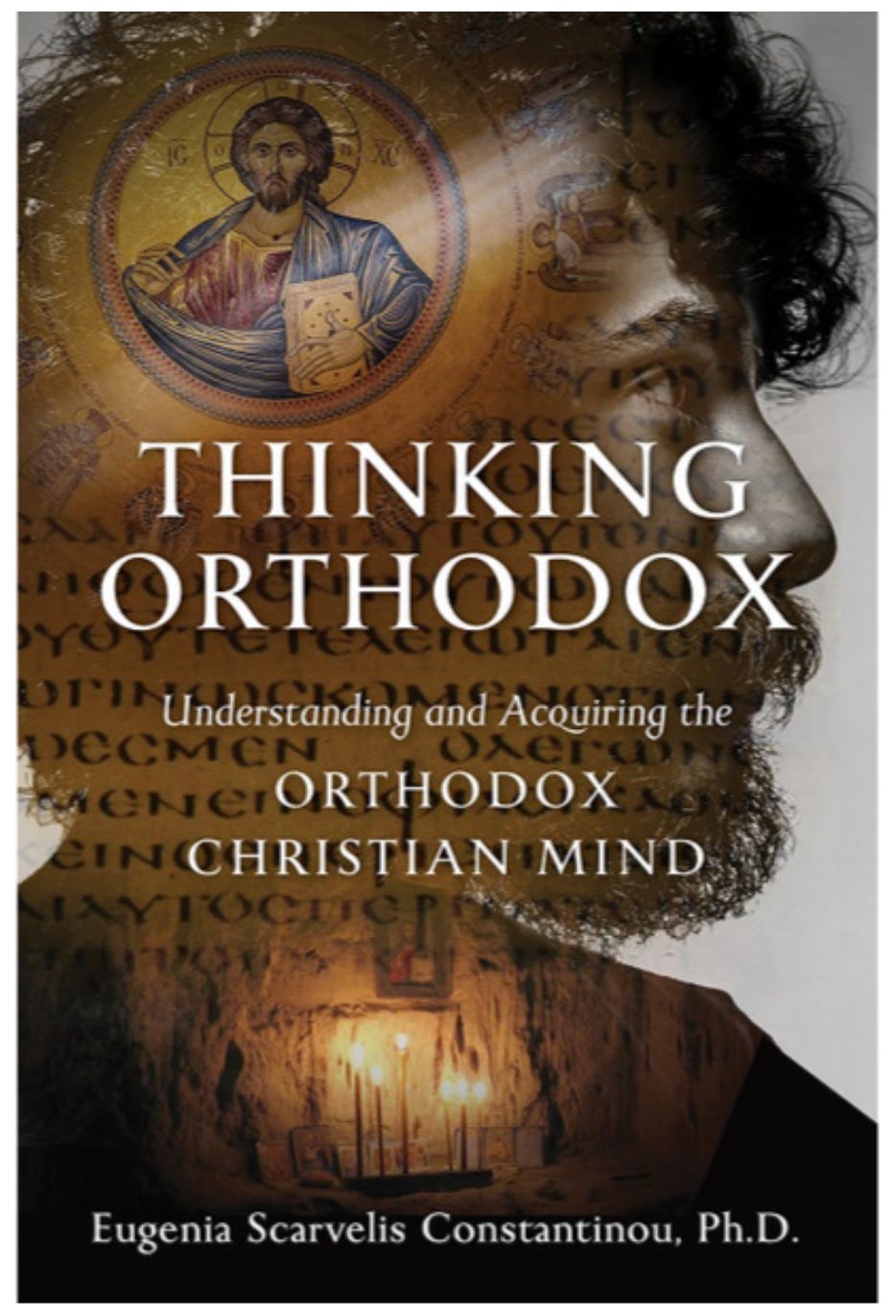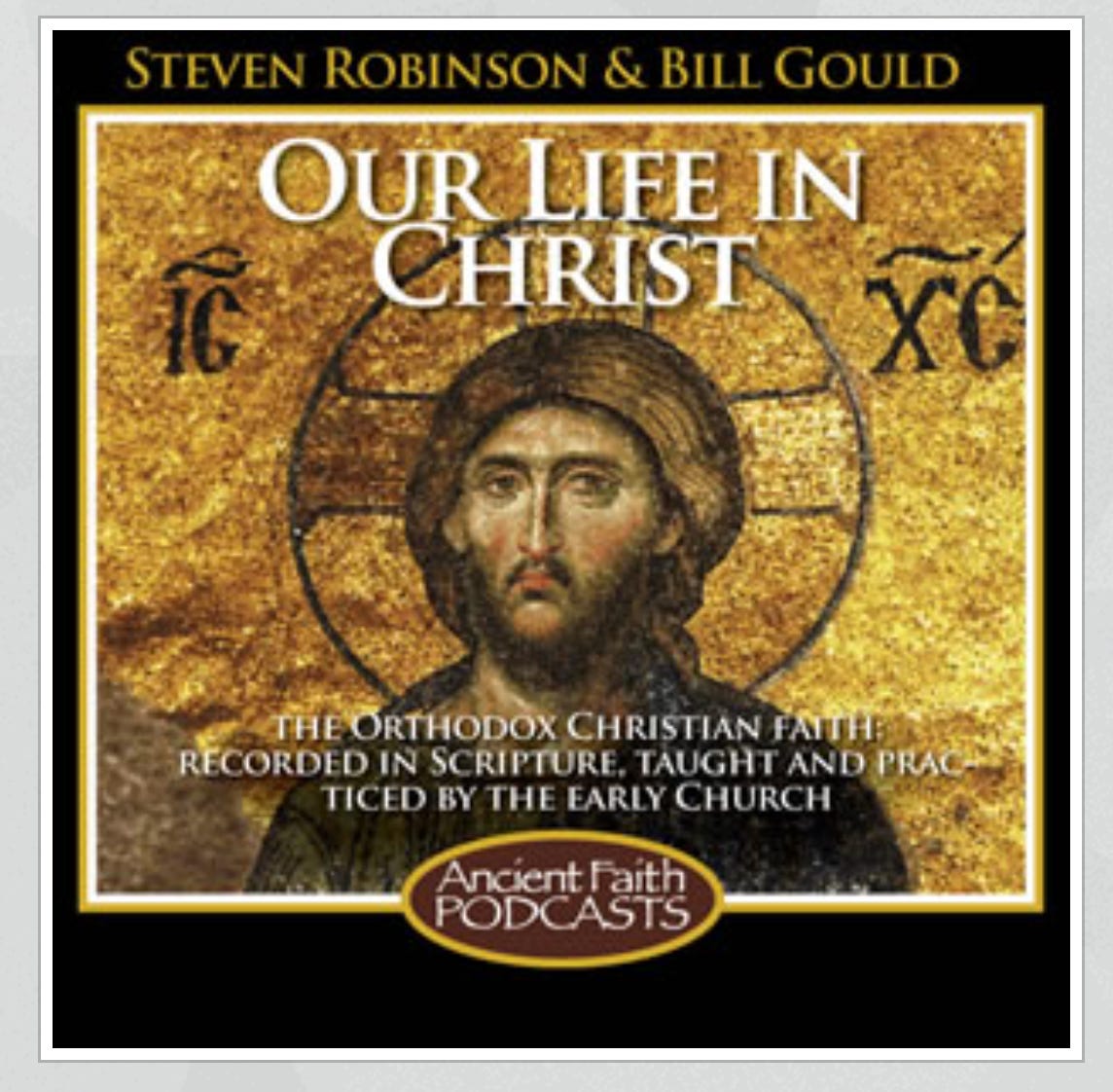Every traveler needs a map. These days, we set our phone apps and follow whatever Siri or Waze or Google tells us to do because we assume they are smarter. Sometimes they are and sometimes they aren’t. I’ve had Waze take me some pretty strange routes at times and have even had to double back to return to the route. The app insists it knows the fastest way. I have had my doubts.
An inquirer into Orthodoxy is no different. It would be tempting to just pick up random books, watch some YouTube videos, listen to some podcasts, decide if the OC is for me and if it “resonates” then “check it out.” If I like it and think it’s cool, I’ll join. But be forewarned—as with everything, and especially with things that are inherently good, there are a lot of very bad representatives of Orthodoxy out there in the inter-webs, and a whole lot of misinformation, so instead of just googling something and following the first rabbit trail…
Stop. This is not just another church. When I come to the Orthodox church I am entering a new culture. Anyone who has traveled abroad or encountered a different culture understands that in order to do this well, one must undergo a fundamental change of mindset. Crossing cultures requires profound humility and a desire to learn from those who are native to the culture we are encountering. To enter a culture and not be an “Ugly American” means I must be quiet, inquisitive, nonjudgmental, willing to try new things, and accepting of ideas and beliefs that are very different from my own. I must lay down what I think I know and not project my “understanding” of things onto the people and their practices. I must remember that I am the foreigner.
It was through books and people who love to read books that I first heard of Orthodoxy and cared to hear more. One of these people was a convert to Orthodoxy, and the other was my Godmother, who was born and raised in an Orthodox household. Both of these women represented the Orthodox faith to me beautifully and faithfully, and in a way that made me want to learn more. In my current church, which is heavy with converts, I have looked to befriend people who are “cradle Orthodox,” or at the very least, “seasoned” Orthodox. They believe things and understand things that to a convert can seem like hurdles and potholes, and sometimes like preposterous stories that any rational person would reject out of hand (read spirits, Saints, Mary, miracles, and martyrs). The question is not how can they believe these things, but why, and that has to do with a religious Tradition that has roots extending as far back as the Creation myth. I am being grafted into this tree, and until I have become a fully integrated branch in both practice and understanding, I have no business trying to improve upon it with my opinions and judgements. It is a humbling experience to sit with someone who has been raised in this faith and read their reactions to some of my questions. I am a child and thankfully they understand this and love me in that place. It is something I must grow into.
In this post I would like to share some of the first books and podcasts that were my Lonely Planet travel guides and Waze. I can’t necessarily share my friends with you but can (and do) encourage you to find someone to talk to who has been Orthodox for a long time and can help you navigate the waters. Even better, contact an Orthodox priest and find out when their inquirers / catechumen class takes place. Then go and ask questions. They will be able to steer you aright.
First—and I cannot recommend this enough—I listened to the podcast called Orthodoxy and Heterodoxy by Fr. Andrew Stephen Damick from start to finish. (There is a book by the same title comprised of the same content.) The reason I like this podcast is because it takes you from the beginning of Orthodoxy and walks you through the Orthodox view of the heterodox faiths that have resulted from the Great Schism. It is very even-handed, and in my estimation, non-judgmental. It simply lays out the various doctrinal “brands” of Christianity and explains how they are different from Orthodoxy. You can find the podcast here, and the book here.
For the Life of the World by Fr. Alexander Schmemann is a beautiful treatise on the Church, Orthodox Christian worldview, and ourselves as the Church in the world. Its readers will find it a bulwark of wisdom in combating secularism and soft notions of theology that are failing in a non-Christian landscape. I had to take this book a few pages at a time and digest it slowly. Perhaps I only barely grasped it, but it will be one I return to again and again. Fr. Alexander truly conveys what it means to be an Orthodox Christian in a post-modern culture. You can find it here or click on the image below.
Becoming Orthodox by Fr. Peter Gilquist is the story of a group largely made up of Campus Crusade staffers who had a question that demanded an answer. “Is there a Church which today meets the criteria of Christ’s Church?” (p vii) Without telling the story myself (because it really is worth reading) they ultimately find themselves in the fold of the Orthodox Church. Their experience is a contributing factor to the growth of Orthodoxy in North America in recent decades. This is a story with which Protestant inquirers can fully identify and asks all of the questions that the newcomer is asking as s/he examines the churches’ doctrines and thinks, “Something is missing, but I don’t know what it is. How do I find it?” Link here.
Thinking Orthodox by Dr. Eugenia Constantinou was a fascinating early read for me. It introduced me to the very different way of thinking about faith that is embodied in Orthodoxy. Dr. Jeannie is a “Presvytera” (wife of a priest) and an astute and accomplished Biblical scholar and teacher. Her writing is easy to read and very clear. She introduced me to the concept of the Orthodox “phronema” or mindset that governs Orthodox behavior, worship, and traditions. This book was my Lonely Planet guide to the mind of the Church. My Godmother had picked it up and mentioned it to me and so naturally I bought it immediately and devoured it with many underlines. This probably was directly contrary to the Orthodox “phronema” now that I think about it, but I loved this book, as it explained so much of what otherwise I would not have understood early on.
The Age of Paradise and its sequels by John Strickland is Church history from an Orthodox Perspective. I am still working through this series, and enjoying it immensely, but I qualify as a nerd so no pressure. This fills in most of the gaps I had as a Christian concerning Church history. In my experience the story of the Church stopped at the canonization of scripture and started again with Martin Luther. How much we have missed! Some church historians will spend time on the middle ages and the foul behavior of the popes so as to lay a groundwork to justify the Reformation, but as far as they are concerned, the Eastern Church was dead or so insignificant it was not worth mentioning. Western Christians do themselves a disservice in this state.
I took the photo below when I first began my Orthodox inquiry. It is a page from one of the textbooks I used in my children’s Protestant homeschooling curriculum. Sadly, I didn’t know that I should be questioning it, and to my dismay, this is what they learned. If you would like to avoid this book in the future it is called The Church in History by one B. K. Kuiper.
Arise O God, again by Fr. Andrew Stephen Damick is a short and simple declaration of the Gospel as told from the Orthodox perspective. It is the Gospel of Jesus Christ as victor over demons, sin, and death, as it was understood and passed down by the early Church until today. The absence of the Protestant mindset and explanation of the Gospel allows for an exploration of an entirely different paradigm. My husband enjoyed Arise O God so much that when he finished the audiobook he went right back to the beginning and listened again. I also found it very enlightening and will read it again.
Mary as the Early Christians Knew Her by Frederica Mathewes-Green is a book I am currently re-reading. When I came into the Orthodox church I was confronted with the reality that in every church I ever attended, Mary is effectively shunned. She is treated as a Christmas ornament and acknowledged as a fine example and a sweet Jewish girl who obeyed God, but not much more. In stark contrast, in Orthodoxy she is honored, venerated, addressed directly, and deeply loved. One cannot enter the Orthodox context and not confront their relationship with Mary, the Mother of God, whom we call by her Greek title “Theotokos,” or “God Bearer.” I have come to understand that if she is the mother of our Lord, and if I desire to be united completely with him for my Salvation, then she is also my mother. Christ, being sinless, perfectly obeys the commandment to “honor thy father and thy mother,” and therefore, I too must honor her. The first time I read this book, I felt as if time was somehow compressed, and I was able to place myself in the post-resurrection context of the apostles and their immediate community. I came to know Mary in a whole new way, and as a result am beginning to feel the deep connection that my Church shares with her. I am learning to love her, though I know I still have a long way to go. Therefore, I am reading this lovely, winsome volume again.
Finally…(this post is becoming like the liturgy, when they say, “Let us complete our prayers unto the Lord…” and there are still 20 minutes of prayers to go) I cannot close this post without recommending my two favorite podcasts on the subject of Orthodoxy:
Our Life in Christ - Every question that concerns Protestant and Catholic inquirers and converts is addressed over approximately 4 years worth of episodes. It is an appealing and compassionate apologetic for the Orthodox faith.
Lord of Spirits - This podcast is a deep dive into ancient Biblical tradition and texts and provides the listener with the thrill of Giants, Behemoths, Nephilim, The Garden of Eden, and the Fall of Angels and the harrowing of Hades. I give this one cautionary piece of advice, though: make sure you have time for this one. Episodes are at least 90 minutes and there is enough content to keep you busy for a very long time. It is best to work through from the beginning as episodes build on each other. As Fr. Andrew Stephen Damick and Fr. Stephen DeYoung (nicknamed the Podfathers) like to say, this is the podcast that takes you into all the parts of your Bible that you didn’t underline, and they frequently “ruin Sunday school.” This one is loads of fun, very enlightening, and yet spiritually challenging—a wild ride.
In spite of all these resources, I cannot close without recommending that above all you seek out a Church. Go to a service, or two, or three. Attend for a month. Attend forever. You might just find what you’re looking for.














Really appreciate the book -and podcast recommendations! Thank you!
I looked at your picture to make additions to my reading list. Who wrote The Way of A Pilgrim?